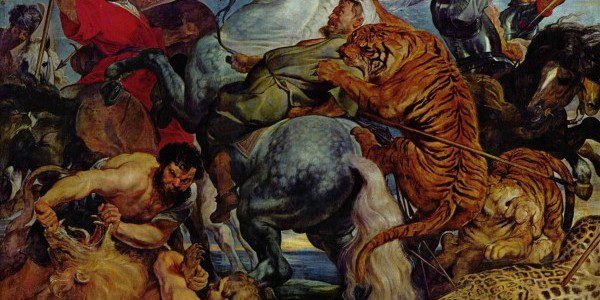Yesterday, I led a Bible study at my church on 1 Thessalonians 4. In this chapter we come to that most (in)famous “rapture” passage:
But we do not want you to be uninformed, brothers and sisters, about those who have died, so that you may not grieve as others do who have no hope. 14 For since we believe that Jesus died and rose again, even so, through Jesus, God will bring with him those who have died. 15 For this we declare to you by the word of the Lord, that we who are alive, who are left until the coming of the Lord, will by no means precede those who have died. 16 For the Lord himself, with a cry of command, with the archangel’s call and with the sound of God’s trumpet, will descend from heaven, and the dead in Christ will rise first. 17 Then we who are alive, who are left, will be caught up in the clouds together with them to meet the Lord in the air; and so we will be with the Lord forever. 18 Therefore encourage one another with these words.
So what’s going on here? Is Paul teaching here what many Christians today believe to be the “rapture,” that “thief in the night” moment when Jesus returns, poking through the clouds, and all living believers are snatched up into the air, levitating up into sky in a state of hypnosis or ecstatic hysteria or peaceful resignation (who knows?).
What we do know, first of all, is that Paul is responding to a particular concern these brand new converts, the Thessalonian Christians had. Paul, Silas, and Timothy had been teaching them about the parousia, the coming appearance of Jesus when the Kingdom would be finally and firmly established. These new Christians wondered what would happen to their friends and family who had already died. Would they miss out on the parousia? Would they not get to see the Kingdom established? So Paul writes this letter in part to correct their misunderstanding, and to encourage them that in fact, not only would their friends and family who have died be able to experience the parousia, they would coming with Jesus himself! They would be first–and the believers who were alive at the time would be then second. So rest assured, Paul says here (and “encourage one another with these words”), they won’t miss out.
But then what about the rapture? Will the Christians be “caught up in the air,” flying up into the atmosphere, levitation style? (and since the earth is a sphere…what is “up,” exactly? Where would they be headed?).
NT Wright helps us here. In a brief essay from 2001, called “Farewell to the Rapture,” Wright explains that Paul was using figurative, metaphorical language. We modernist, literalists have a hard time hearing it the way it was intended, but it would have been readily understood by his readers. Here’s Wright’s explanation in brief:
- Paul’s description of Jesus’ reappearance in 1 Thessalonians 4 is a brightly colored version of what he says in two other passages, 1 Corinthians 15:51-54 and Philippians 3:20-21: At Jesus’ “coming” or “appearing,” those who are still alive will be “changed” or “transformed” so that their mortal bodies will become incorruptible, deathless. This is all that Paul intends to say in Thessalonians, but here he borrows imagery—from biblical and political sources—to enhance his message. Little did he know how his rich metaphors would be misunderstood two millennia later.
- First, Paul echoes the story of Moses coming down the mountain with the Torah. The trumpet sounds, a loud voice is heard, and after a long wait Moses comes to see what’s been going on in his absence.
- Second, he echoes Daniel 7, in which “the people of the saints of the Most High” (that is, the “one like a son of man”) are vindicated over their pagan enemy by being raised up to sit with God in glory. This metaphor, applied to Jesus in the Gospels, is now applied to Christians who are suffering persecution.
- Third, Paul conjures up images of an emperor visiting a colony or province. The citizens go out to meet him in open country and then escort him into the city. Paul’s image of the people “meeting the Lord in the air” should be read with the assumption that the people will immediately turn around and lead the Lord back to the newly remade world.
So does Paul teach the “rapture”? No, he doesn’t. He doesn’t teach that Christians are going to be taken up into the atmosphere and protected from global tribulations in a heavenly hideaway. He teaches that Jesus (not the Emperor) is Lord and that when the times comes to bring an end to earthly sufferings and evil, the resurrected Jesus will appear (parousia) and complete the kingdom inauguration in a restored creation. Evil will be defeated, death will be overcome, and the powers and principalities will be undone. Creation will be reconciled to God.
Oh, and Paul also told the Thessalonians to not get too excited about all this eschatology stuff. They should get back to work, and mind their own business (1 Thess 4:11). Jesus will come when he comes.
Stay in the loop! Follow Unsystematic Theology on Facebook
Also, if you want to hear the “rapture” critique straight from N.T. Wright himself, watch this video:
https://www.youtube.com/watch?v=Kxzf00qrErw















